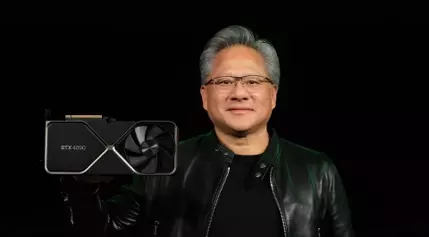
AI's Evolving Role in the Gaming Industry: Opportunities, Challenges, and the Future of Acting
In a recent interview with IGN, Christoph Hartmann, the CEO of Amazon Games, shared his insights on the current state of the gaming industry, including the role of generative AI in game development. While Hartmann's comments on the potential of AI to streamline processes and shorten development cycles have sparked debate, his remarks on the industry's relationship with acting have raised eyebrows among industry professionals and enthusiasts alike.Navigating the Changing Landscape of Game Development
Hartmann acknowledged the "high bar" for creating a new Tomb Raider game, reflecting the industry's drive for innovation and the demands of modern gaming audiences. He also touched on the early stages of the highly anticipated Lord of the Rings MMO, underscoring the complexities involved in bringing such ambitious projects to life.The executive's most notable comments, however, centered around the potential impact of generative AI on game development. Hartmann expressed his hope that AI could "shorten the life cycle" of game production, suggesting that it could help streamline processes and reduce the time-intensive nature of traditional development methods."I think game development takes way too long, like five years per game," Hartmann said. "It just means basically, everything will be lucky shots and hopefully AI will help us to streamline processes so hand-done work will go fast."While Hartmann's perspective on the potential benefits of AI is understandable, the extent to which it can truly revolutionize the industry remains a subject of debate. The complexities of game development, from narrative design to technical implementation, are multifaceted, and the role of human creativity and expertise should not be underestimated.Examining the Relationship Between AI and Acting in Games
Hartmann's comments on the role of acting in the gaming industry have been particularly controversial. He stated, "Especially for games, we don't really have acting," a claim that has been met with strong opposition from industry professionals and enthusiasts alike.The gaming landscape has evolved significantly, with many titles featuring stunning performances that elevate the overall storytelling experience. Games like Baldur's Gate 3, The Last of Us, and Final Fantasy 16 have set new benchmarks in the integration of acting, narrative, and game design, showcasing the growing importance of performance in shaping the player's immersion and emotional connection to the virtual worlds they inhabit."The news that video games don't have acting will surely come as a shock to SAG-AFTRA's 2,500 video game performers, and the 160,000 SAG-AFTRA members who have refused to work on video games produced by the industry's major developers in support of those performers," the article notes, highlighting the significant role of voice actors and motion capture artists in the industry.Hartmann's remarks also seem to contradict the industry's growing recognition of the value of skilled acting in video games. As the article points out, "one could argue that acting has been an essential part of the industry for years, and is more central to video games now than it ever has been before."Exploring the Potential of AI in Localization and Beyond
While Hartmann's comments on acting in games have drawn criticism, he did acknowledge areas where AI could potentially assist in the development process, such as localization. He noted that AI could help "translate our games into more languages," which could benefit gamers in countries where English proficiency is not universal.However, the article rightly points out that localization is a complex process that involves more than just accurate translation. It requires a deep understanding of cultural nuances, contextual references, and the nuances of language to ensure a seamless and authentic experience for players.Hartmann's recognition of the limitations of AI, stating that "I don't believe any technology can replace human creativity and uniqueness," is a promising acknowledgment of the ongoing importance of human expertise and innovation in the gaming industry.Balancing Innovation and Ethical Considerations
As the gaming industry continues to evolve, the integration of AI and its potential impact on various aspects of game development, including the role of acting, will undoubtedly be a topic of ongoing discussion and debate.While Hartmann's insights offer a glimpse into the industry's perspective, it is crucial for developers and decision-makers to carefully consider the ethical implications of AI usage, particularly in areas that directly impact the livelihoods and creative contributions of industry professionals.As the article suggests, the SAG-AFTRA strike and the call for "fair compensation and the right of informed consent for the AI use of [actors'] faces, voices and bodies" highlight the need for a balanced and transparent approach to the integration of AI in the gaming industry.Ultimately, the future of gaming will be shaped by the industry's ability to harness the power of emerging technologies while preserving the essential human elements that have defined the medium's artistic and creative evolution. The ongoing dialogue and collaboration between industry leaders, developers, and the creative community will be crucial in navigating these complex challenges and shaping a sustainable and innovative future for the gaming industry.New

Entertainment

Entertainment

Entertainment
























































